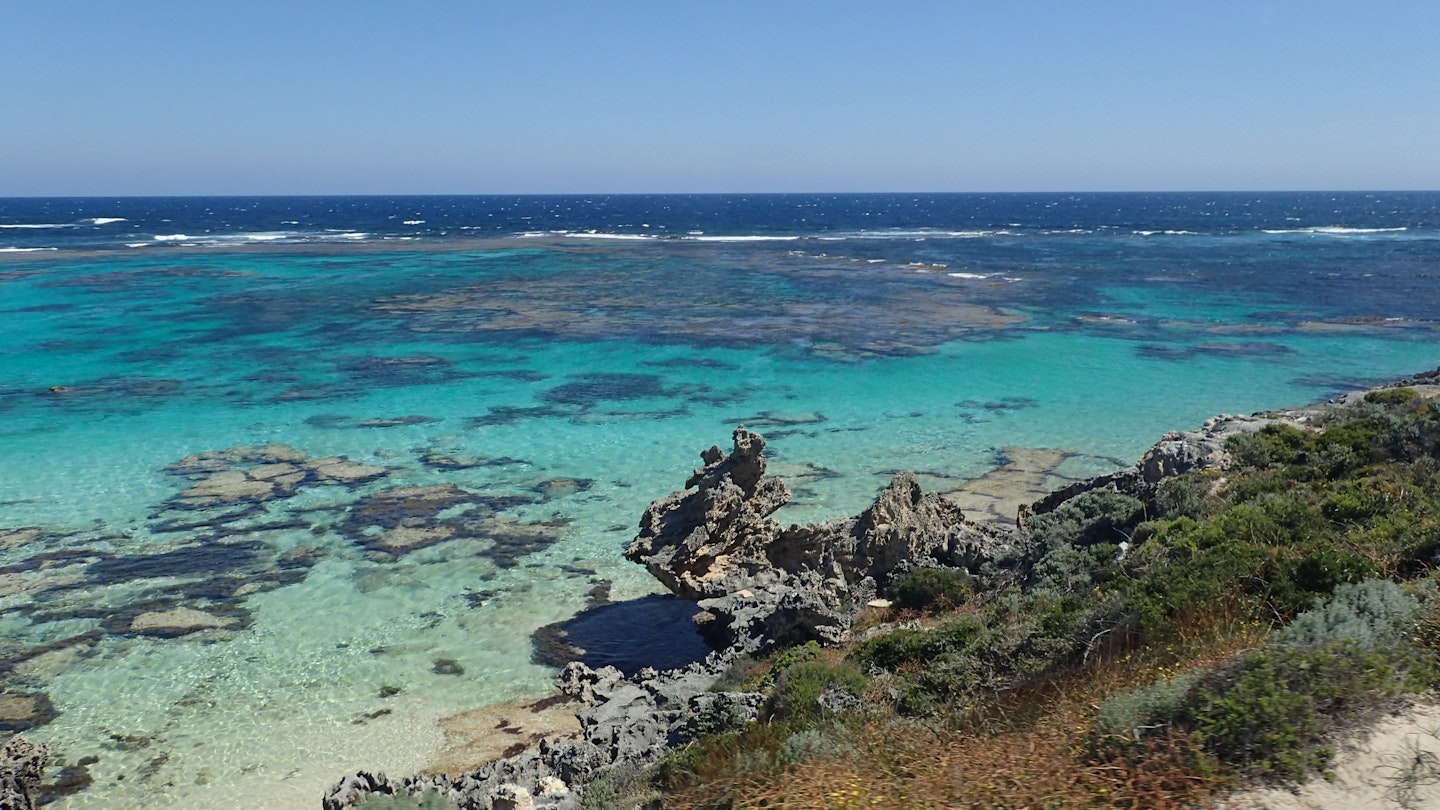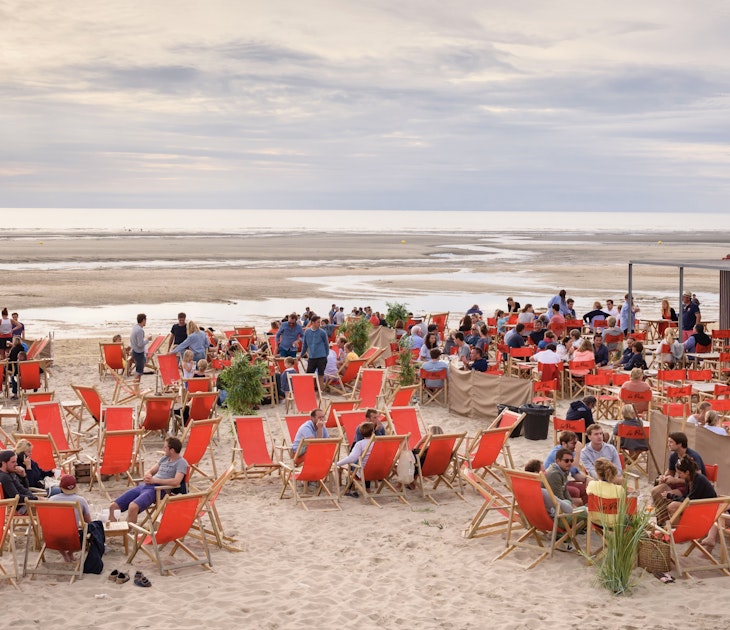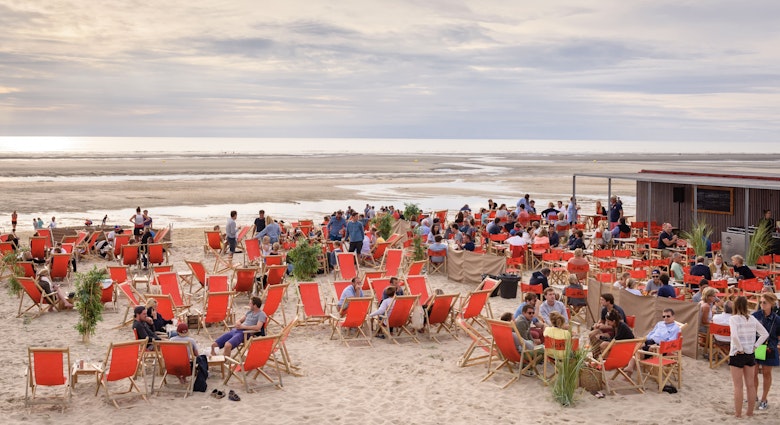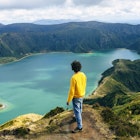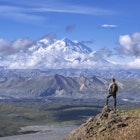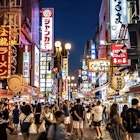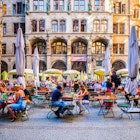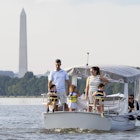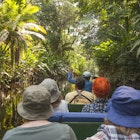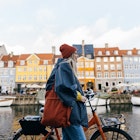Rottnest Island or Wadjemup (its Aboriginal name) has long been a playground for Perth’s outdoorsy population, but thanks to a very cute marsupial, the secret is out. A short ferry ride across the Indian Ocean, the isle on the horizon abounds with furry quokkas that are adept at pulling a winning grin for the camera.
Taking a quokka selfie and posting it for a social media swoonfest is just the beginning, of course. Rotto (as it is colloquially referred to) is rimmed by pale, sandy beaches, dotted with snorkelling spots and retains a laidback-holiday vibe that’s hooked in its back to basics nature. But the island also has a fascinating – and often grim – history to discover.
Bike to the beach and back
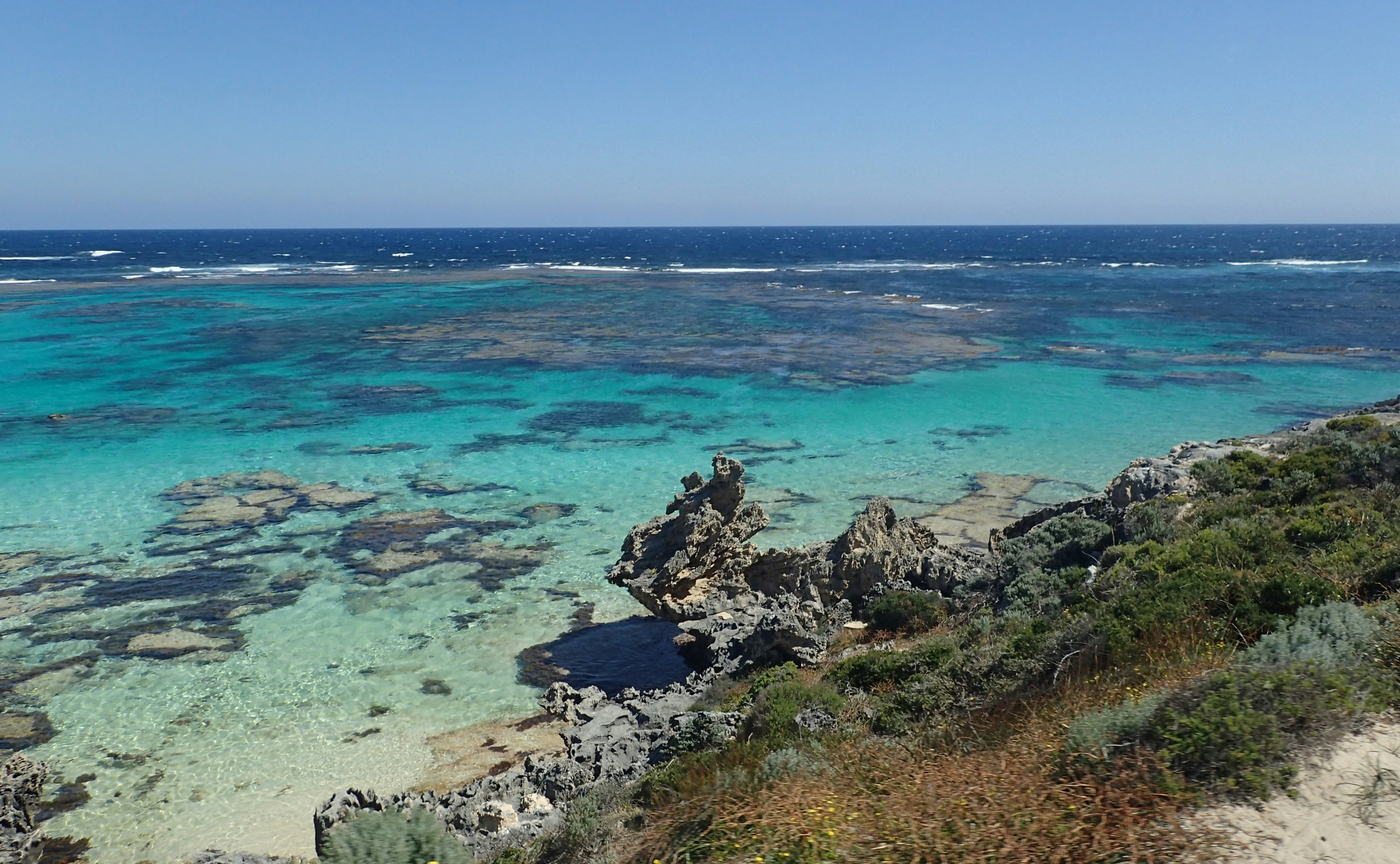
Aside from service vehicles, Rottnest Island is car-free. Roads are paved and the terrain is only mildly hilly, so the bicycle is king. Bikes are available for hire on the island, or through the ferry companies. You’ll see people cycling everywhere from The Settlement – the main town area in Thomson Bay where ferries dock – to the island’s most westward point.
While cycling Rottnest you’ll almost certainly spot the island’s famous marsupial: the quokka. Technically nocturnal, near The Settlement these small wallaby-like creatures have learned to come out by day to eat food scraps left by tourists. Resist the urge to feed them, as human food is not great for their health. So many travellers pose for a selfie with one, the act has its own hashtag, #quokkaselfie.
Though Rottnest is overwhelmingly popular in peak periods (such as summer and Easter), it isn’t hard to find a quiet piece of its coastline for peaceful lounging. The jagged outline of the island contains 63 bays and beaches, from long stretches of sand and aquamarine water, to tiny sandy enclaves fringed by rocks.
Of the best places to have a dip in the ocean, The Basin is close to The Settlement, but it’s busy. Far quieter is Ricey Beach, a secret spot in the north-west. One of the nicest, most blindingly-white petit beaches is at Little Parakeet Bay, close to the island’s second micro-township at Geordie Bay; Fay’s Bay is another lesser-known gem.
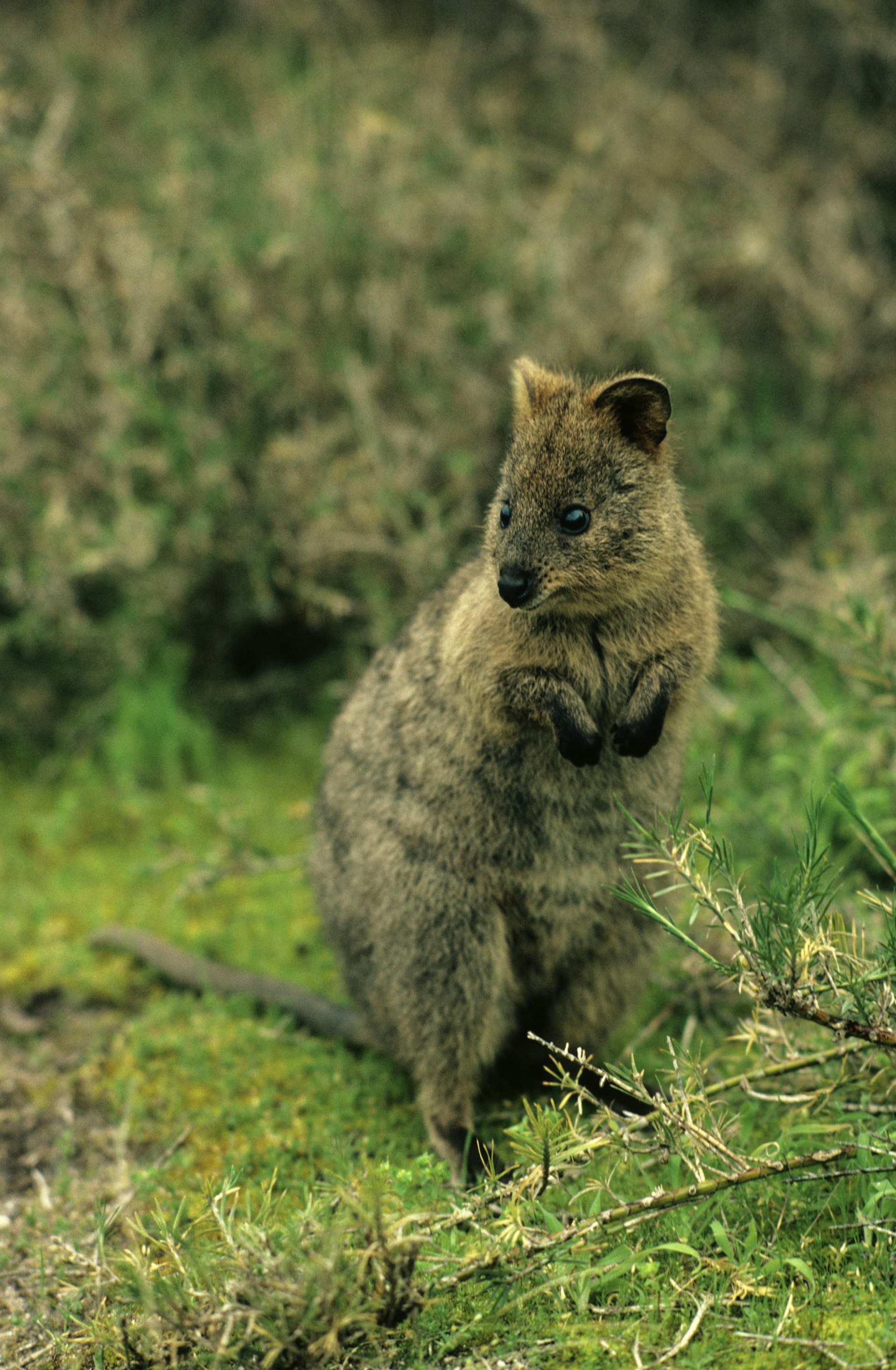
Water sports and walks
Surfing, bodyboarding and stand-up paddling are big on the island, with waves commonly two to three times higher here than at mainland locations. Strickland Bay is an acclaimed surfing break, along with Salmon Bay and Stark Bay.
Fishing is another popular aquatic activity, as Rotto’s waters contain a variety of species. If you haven’t brought your own fishing gear, you can hire or purchase it in The Settlement. Be sure to consult a map showing the island’s marine protection zones.
Underwater, you can scope out fish, seals, coral and even shipwrecks by joining a diving tour; though most of these operate from the mainland. An on-island alternative is the Rottnest Island Snorkelling Cruise, which includes an hour of snorkelling in a selected bay.
If you’d rather explore on dry land, head out along the Wadjemup Bidi, a series of linked walking trails with interpretive signage, which lead you through the island’s natural highlights. Be sure to bring plenty of water and sunscreen, and find out where the island bus stops, should you need a ride on the return journey.
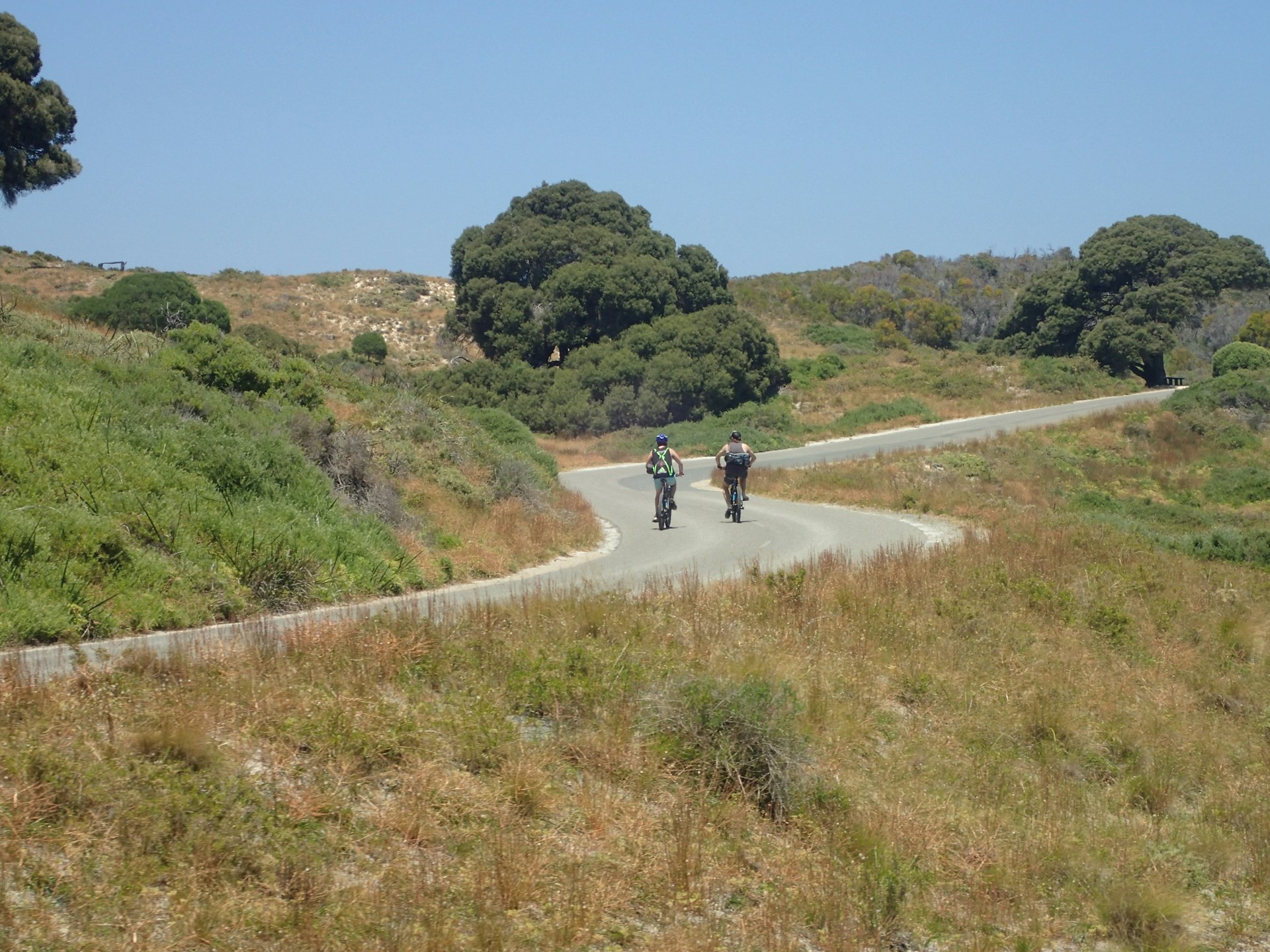
A challenging history
Rottnest wasn’t always a holiday hotspot. It has a grim history as a colonial-era prison. From 1838 to 1904 it was used as a place of imprisonment for 3,700 Aboriginal men and boys.
These prisoners built much of the island’s infrastructure, including the lighthouses. They were housed in the cell building known as the Quod, where it’s believed at least 300 Aboriginal people died. Until recently the Quod was used as accommodation; now there are plans to repurpose it, along with the nearby Aboriginal Burial Ground, as an official memorial to those who lived – and died – here. Visit the Rottnest Museum to learn more about this period.
Nearby is the Salt Store, a remnant from a period when salt was produced from Rottnest Island's salt lakes and transported to Fremantle. Rebuilt in 1997 for use as a gallery and convention space, this store house was originally constructed by Aboriginal prisoners in 1868.
Rottnest was also used as a wartime base. In World War I the island housed internees and prisoners of war, and in World War II massive guns were installed at the Oliver Hill Battery as protection, should Perth come under attack.
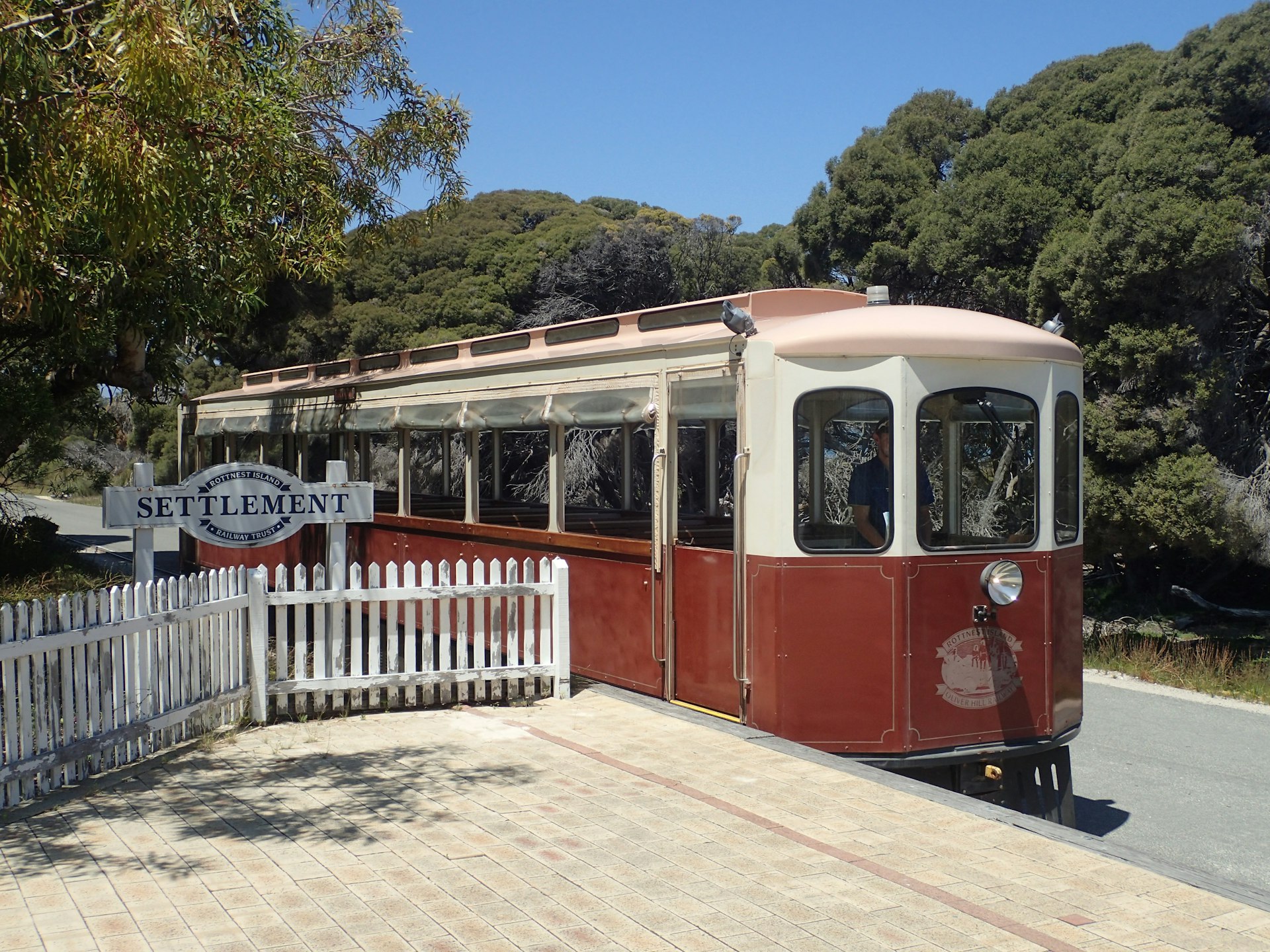
Guides now give tours of these emplacements and the tunnels beneath. Get there via the Oliver Hill Train (tickets A$20/adult; tour A$9), which follows the route of a former military railway, and enjoy the views as traces the island’s south side.
To learn more about the island’s brutal past, it's worth taking one of the free historic walking tours in The Settlement run by volunteer guides headquartered at the Salt Store (they’re the ones wearing bright yellow t-shirts). The one-hour ‘Reefs, Wrecks and Daring Sailors’ tour details the many ships shredded on surrounding reefs, and the local pilots who worked to prevent such accidents.
Still got time to kill?
If you fancy a splash, bounce and splat, the bright green, inflatable Just 4 Fun Aqua Park floats on Thomson Bay from November to April. For a heart-starting perspective of Rottnest Island you can also drop onto it from a great height with Skydive Geronimo. There are also Segway tours, joy flights and an electric bike tour with young guides who are full bottle on history and nature. Prefer a more sedate activity? Golfers can try their luck (or skill) on the nine-hole course at the Rottnest Island Country Club. Get lunch and a WA craft beer at Hotel Rottnest (sit outside but beware the sly seagulls) and grab coffee from The Lane, in the settlement’s pedestrian shopping zone.

Making it happen
Most people visit Rottnest as a day trip, but locals argue it’s well worth staying overnight to soak up the serenity and people-free beaches after the daytime crowds have departed. There are basic fully-equipped cottages, affordable cedar cabins, comfortable hotel rooms at both Karma Rottnest and the Hotel Rottnest; and there’s a hostel within the old army barracks at Kingston and leafy campgrounds. By late 2018 there will be a glamping resort of safari tents, a beach club and boardwalks named Pinky’s Eco Retreat, after the beach it fronts.
To visit the island, catch a ferry operated by either Rottnest Express, Rottnest Fast Ferries or SeaLink Rottnest Island. If you depart from the Perth central city Barrack St jetty, you’ll score a scenic tour of the Swan River through Perth’s upmarket neighbourhoods (tip: sit on the right hand side of the vessel); otherwise, take the B-shed departure that’s two minutes’ walk of Fremantle’s train station. The Rottnest Fast Ferry departing Hillarys Boat Harbour is handy for those staying in the northern suburbs of Perth and, bonus: you can leave your car there for free.
This article was updated by Lonely Planet Local Fleur Bainger in June 2018.
Tim Richards visited Rottnest Island courtesy of Tourism Western Australia. Lonely Planet contributors do not accept freebies in exchange for positive coverage.
